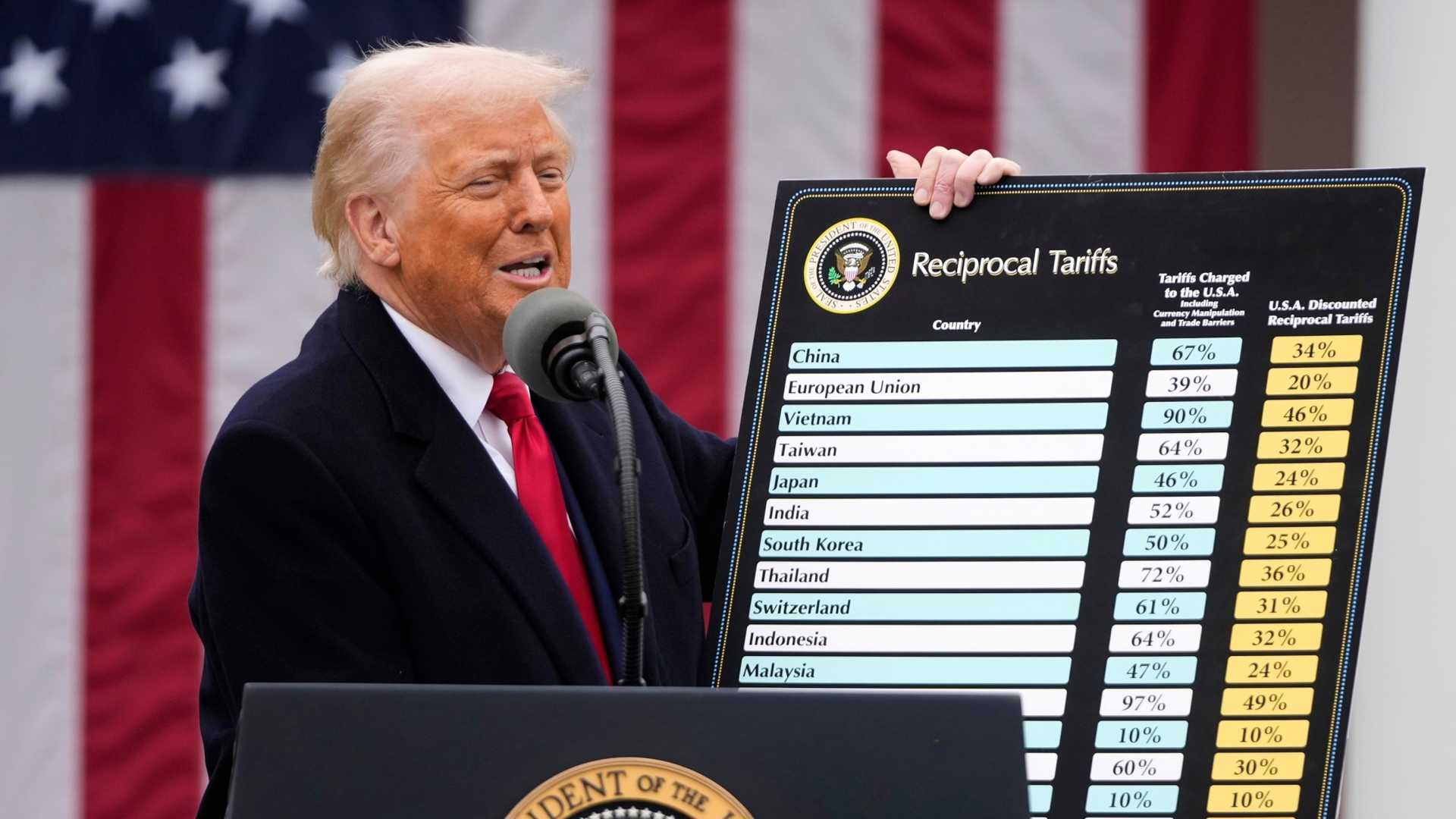Politics
Trump Declares National Emergency Over Trade Deficits, Imposes Sweeping Tariffs

WASHINGTON, D.C. — On April 2, 2025, President Donald J. Trump declared a national emergency due to what he described as detrimental foreign trade and economic practices. In a move to bolster the economic standing of the United States and protect American workers, he announced new tariffs affecting most U.S. trading partners.
During a press conference, Trump stated, “Our trade deficits have hollowed out our manufacturing base and made our defense-industrial base reliant on foreign adversaries. This order is a necessary step to restore national and economic security.” The president invoked the International Emergency Economic Powers Act of 1977 (IEEPA) to enforce these tariffs, citing large and persistent trade deficits as a direct threat to American economic interests.
The new tariffs will be set at a baseline of 10% on goods imported from all countries, effective April 5, 2025, at 12:01 a.m. EDT. Countries with whom the U.S. has the largest trade deficits will face higher, individualized tariffs starting April 9, 2025. “If other countries retaliate, we will consider increasing these tariffs,” Trump added, emphasizing a flexible approach to his trade strategy.
According to the administration, the tariffs aim to address the lack of reciprocity in trade agreements, currency manipulation, and excessive value-added taxes (VAT) that other nations impose on U.S. goods. The announcement comes in response to what Trump characterized as unfair trading conditions that disadvantage American companies.
Examples of goods exempt from the new tariffs include those already subject to existing Section 232 tariffs on steel and aluminum, as well as critical items like pharmaceuticals and semiconductors. Additionally, products originating from Canada and Mexico will continue to follow existing trade agreements, particularly concerning fentanyl and migration-related issues.
The declaration has drawn both support and criticism. Supporters argue it could ultimately restore American manufacturing jobs and strengthen U.S. sovereignty in global trade. Critics, however, warn that such sweeping tariffs may trigger trade wars and hurt consumers by raising prices on imported goods.
With his administration focused on economic recovery, this announcement marks a significant escalation in the U.S. approach to international trade. The long-term impacts of the tariffs on global relations and domestic economic conditions remain to be seen.












